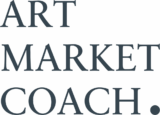Accounting for Artists
The course Accounting for Artists explains how an invoice is structured, what the differences between taxable, tax-exempt and taxable sales mean for artists, and under which circumstances a voluntary opting for VAT make sense for artists who fall under the small business regulation. I explain in individual steps how an invoice should look like if the artist or the gallery had costs before the sale of the artwork. The course is rounded off by the presentation of a delivery bill for works of art.
The Artist and the Art Market
The course gives practical information for painters, photographers, sculptors and other creative workers. In six 30-minutes modules you will learn all the important basics for an artist to be successfull at the art market: how to deal with galleries in a gallery contract, how to draw a business plan, how to find an art pricing stratgy and sales practices and which social media really help you to develop a brand.
Careers for Art Historians
The course is aimed for art historians after graduading or in a phase of professional orientation. I will explain the advantages and disadvantages of different fields of the art market: how is it to work in a gallery, in an auction house, as an art dealer, at an artist’studio, as an art consultant, journalist or monument conservator, in a museum, in the tourist industry or in an archive, library or university.
The Art Market in the Time of the Pandemic
The course offers a summary of the important developments and changes which the art market has seen since the outbreak of the pandemic. You will learn more about positive and negative consequences for your job if you are an artist, a collector, a curator, a journalist or an art dealer.
The Artist and the Art Market – Module 1&2
What are differences between the primary and the secondary art market? What is the ratio between an artist, gallery owner, art dealer, auctioneer, art critic, curator, museum and collector? What are the specifics of the commission based art world? How do you position yourself within the art market?
The Artist and the Art Market – Module 3
What can we learn from the careers of Rembrandt, Picasso and Hirst? What are the key points of their branding and marketing strategy? Why is it e. g. so important to communicate the image of a successfull artist – even at the beginning of your career? The examples can help you to establish an own marketing strategy for your work.
The Artist and the Art Market – Module 4
Which are the most important platforms for you as an artist? On which platforms are your collectors and galleries active? How can you benefit from Social Media? What is a professional online strategy? Why are actuality and sensible planning so important for a successfull artist?
The Artist and the Art Market – Module 5
How can you establish a longterm relationship with your gallery and collectors? What should your studio look like? How do you structure your analogue and digital inventory? What is a professional portfolio? How can you establish a customer service strategy? What are the basic sales practices? And how you can price your art work?
The Artist and the Art Market – Module 6
What are the hallmarks of the online market? Which alternative ways of income can you generate? How can you apply for a grant? Why does a professional accounting is essential for your success? What does a professional artist’s invoice look like? And at which clauses do you need to pay attention to in a gallery contract?
The Art Market in the Time of the Pandemic – Module 1
What are the major consequences the artists and galleries had to get used to after the pandemic? Is there a fundamental shift towards digital art – NFTs -, the digital art market and the online tools? Can the art fairs go back to “business as usual”? How will the prices develop for emerging, mid-career and bluechip artists?
The Art Market in the Time of the Pandemic – Module 2
How did the big auction houses react to the lockdowns during the pandemic? What are the consequences of the pandemic for the auction market until today? What about the consumer of art – the collectors and museums: Did they change their attitude towards buying, selling and exhibiting art?
When can I register for the course?
You can register at any time.
How long will I have access to the course materials?
After buying a course you’ll have 1 year access to all materials.
Can I download videos for offline playback?
No, you need an active internet connection to access the course content.
